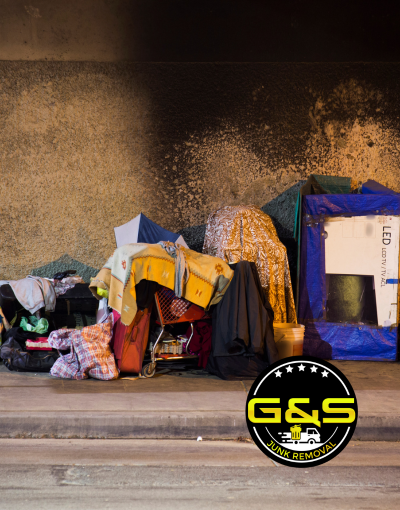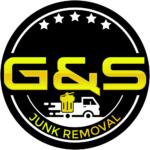Homeless encampment cleanouts are often viewed as simple debris removal projects—just a matter of clearing “trash” from sidewalks or public spaces. But in truth, these jobs are multi-layered, involving emotional weight, logistical coordination, and legal responsibilities.
At G&S Junk Removal, we’ve worked on many camp cleanouts across Los Angeles County, and we’ve come to understand that these projects require more than strong backs and a truck. They require empathy, planning, and awareness.
Here’s a deeper look into the layers of complexity that come with every encampment cleanout—and why junk removal is just one piece of the puzzle.
Layer 1: Emotional Complexity
At the heart of every encampment is a person—or many people—doing their best to survive.
For individuals living in camps, being forced to leave—even temporarily—can be emotionally traumatic. Many have been displaced multiple times, and each cleanout can represent:
The loss of personal items
A sense of instability and fear
The destruction of makeshift communities
Increased anxiety or distrust toward public officials
This emotional toll isn’t something to be brushed aside. A respectful approach begins with acknowledging the human experience behind the cleanup.
Layer 2: Legal Guidelines and Timelines
Encampment cleanouts in Los Angeles are governed by strict laws and protocols designed to protect both public health and individual rights. These may include:
Advance notice (typically 72 hours or more)
Storage of personal belongings for a designated time
Proper disposal methods for hazardous or biohazardous waste
Documentation for any confiscated or removed items
Failure to follow these rules can lead to legal challenges or harm the community’s trust. That’s why G&S Junk Removal works only within proper guidelines, coordinating with city agencies as needed.

Layer 3: Coordination with Multiple Parties
A successful camp cleanout often involves:
Outreach workers, who engage individuals and offer housing referrals
Sanitation teams, responsible for public health and waste management
Mental health professionals, for onsite support when needed
Law enforcement, when necessary for safety
Our role as junk removal professionals is to collaborate, not operate in isolation. We arrive when the time is right and ensure that our work doesn’t interfere with services being provided.
Layer 4: Safety and Risk Management
Encampments often contain:
Needles or medical waste
Human and animal waste
Moldy or decomposing food
Fire hazards and propane tanks
Pest infestations (rats, roaches, bedbugs)
Our crews are trained in safety protocols and equipped with the appropriate PPE. We also ensure proper disposal of hazardous materials, keeping both our team and the public safe.
Layer 5: Ethical Responsibility
While logistics and safety are essential, we believe ethics are just as important.
We ask ourselves:
Are we protecting people’s dignity while we work?
Are we treating personal items with care, not contempt?
Are we working as part of a solution—not making the problem worse?
This mindset guides how we communicate, how we handle belongings, and how we represent our work to the public.
Layer 6: Community Impact and Aftercare
Camp cleanouts affect more than just the individuals involved—they impact entire neighborhoods. After a cleanout, residents want to know that:
The area has been fully restored
Hazardous materials have been safely removed
There is a plan in place to prevent re-encampment
Community members’ concerns are being heard
We work to balance compassion with cleanup, helping communities feel safe while respecting the humanity of the situation.
Final Thoughts: Compassion + Coordination = Real Solutions
Encampment cleanouts can’t be treated like standard junk removal jobs. They demand a thoughtful approach—one that considers legalities, logistics, and the lives at the center of it all.
At G&S Junk Removal, we pride ourselves on being more than just a cleanup crew. We’re part of the broader solution, working with cities, communities, and outreach groups to handle each cleanout with care, precision, and compassion.
